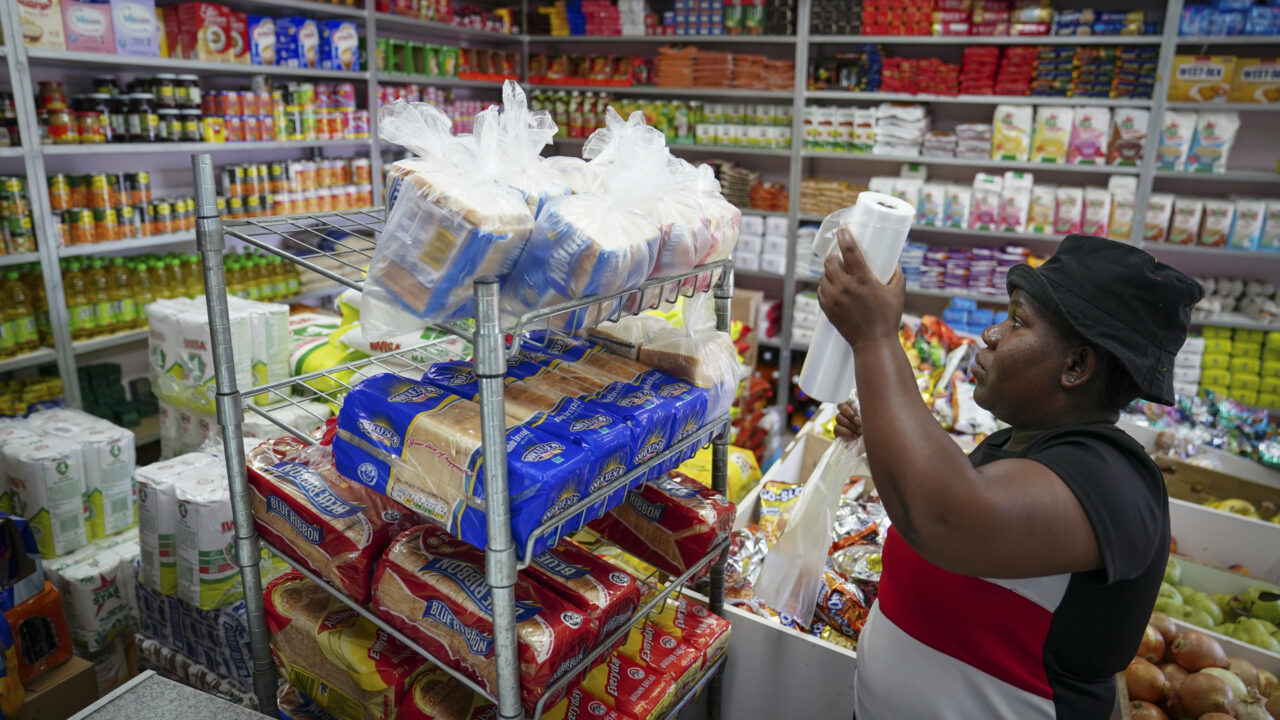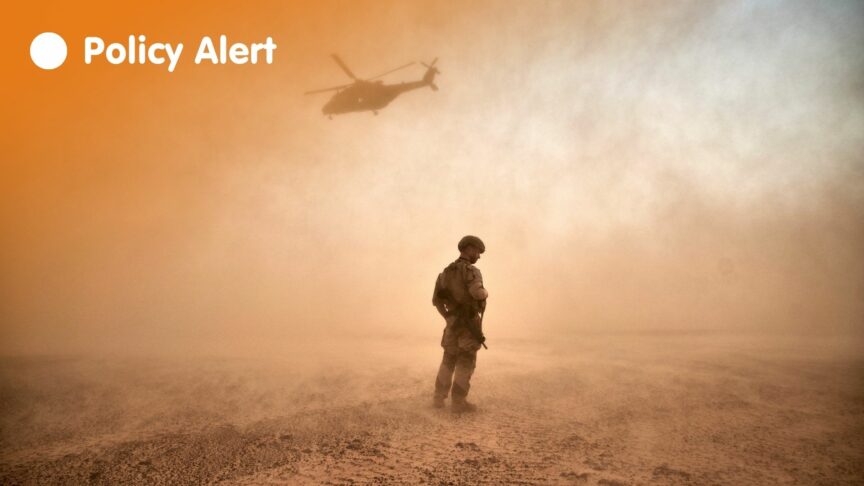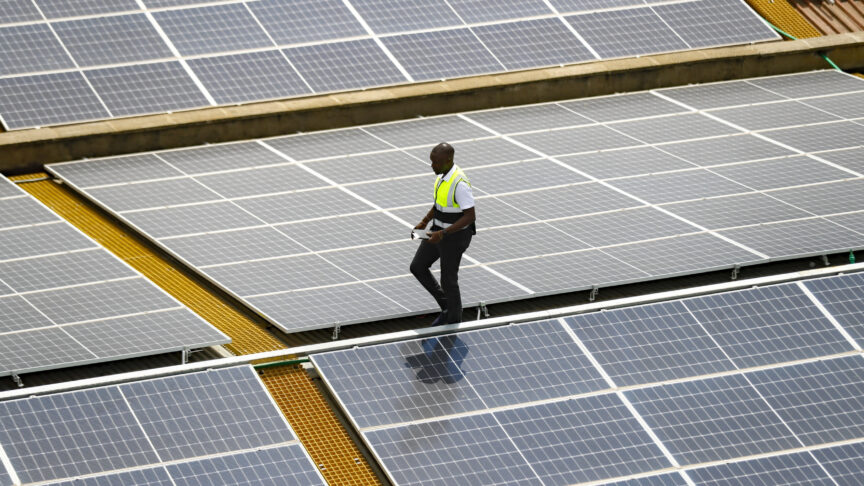Putin’s war on Ukraine: Aftershocks in the Europe-Africa partnership
The war looks set to create daunting challenges for African countries in areas such as food and energy security. Now more than ever, it is vital for Europe to show solidarity with them
Russian President Vladimir Putin’s full-scale invasion of Ukraine has inspired unprecedented shifts in European economic, foreign, and energy policy. It has led to greater solidarity within the European Union, NATO, and the transatlantic alliance. But it risks diverting Europe’s attention away from Africa.
Just a week before the invasion, European and African leaders met to map out their common future. Now the world has changed, raising the stakes of that partnership. Whatever happens next in Ukraine will have significant implications for African countries.
Food and energy insecurity
Ukraine has more arable land than any other European country and 25 per cent of the world’s total volume of black soil, which is particularly fertile. This has helped Ukraine become a global agricultural powerhouse. Together, Russia and Ukraine produce around 27 per cent of the world’s barley, 34 per cent of its wheat, and 73 per cent of its sunflower oil. Most exports of these products move through Odessa and other ports on the Black Sea, which are now closed to commercial shipping.
This has increased food prices in international markets – which, before the invasion, were already at their highest levels since the 1970s. But it could also lead to physical shortages. In January, the United Nations’ Vegetable Oil Index was at its highest level ever. With the price of sunflower oil skyrocketing, buyers are switching to palm oil, which hit record highs on futures markets in early March. Palm oil is a staple in West Africa.
Meanwhile, the price of Brent Crude has increased by 30 per cent on international markets. This may benefit African oil exporters but, overall, will increase the cost of living and pressure on government budgets in Africa – particularly in Nigeria, Kenya, Ghana, Rwanda, and Egypt, which are all heavily dependent on imports.
The rising cost of living could lead to regional instability. Egypt, one of the epicentres of the Arab uprisings in 2011, depends on Russia and Ukraine for around 70 per cent of its wheat imports. While it has reserves that will likely last until June, costs could skyrocket thereafter. Fifteen other African countries receive more than half of their supply of wheat from the two agricultural superpowers. In sub-Saharan Africa, families spend an average of 40 per cent of their income on food (the highest of any region) and the poorest are particularly dependent on the cereals, which are becoming more expensive.
At the same time, the fallout from the Ukraine conflict will likely create new food security challenges and raise the cost of responding to pre-existing humanitarian crises – including those in Somalia and Ethiopia. In Ethiopia’s Tigray region alone, half a million people have died from war and famine in the last 16 months. The director of the World Food Programme (WFP), David Beasley, revealed that the body was already cutting food rations by 50 per cent because of a lack of funding even before Russia launched its all-out war on Ukraine. The WFP procures half of its wheat from Ukraine.
A new cold war
The knock-on effects of Putin’s war on Ukraine combine with the impact of covid-19 on Africa, where 86 per cent of people have yet to receive two vaccine doses. In Africa and the Middle East, the pandemic has already pushed between 29 million and 43 million people into extreme poverty.
The unequal global response to covid-19 created a trust deficit between Europe and Africa. Meagre debt relief, unfulfilled promises of economic support in the form of IMF special drawing rights, and vaccine hoarding created a sense of wariness among African leaders. Some of them no longer see Western countries as reliable partners – a point that South African President Cyril Ramaphosa made forcefully at the February 2022 summit between the EU and the African Union.
The knock-on effects of Putin’s war on Ukraine combine with the impact of covid-19 on Africa, where 86 per cent of people have yet to receive two vaccine doses
The seeds of that mistrust may now be bearing fruit. The UN General Assembly recently passed a resolution condemning Russia’s actions in Ukraine, with 141 countries voting in favour of it. But African states accounted for around half of the 35 countries that abstained from the vote. They include the Central African Republic, Congo, Mali, Madagascar, Mozambique, Senegal, South Africa, Sudan, South Sudan, Uganda, and Zimbabwe. Several over African states avoided the vote altogether.
While it is plausible that African countries simply want to resist taking sides in other people’s wars, there are other historical and political reasons that may be driving the discussion – including the 2011 NATO-led intervention in Libya. But it is also likely that they aim to keep their options open – out of fear that the West will not provide them with the support they need to respond to these compound crises. This is an understandable position given their experience with the global response to covid-19.
With Europe now focused on the conflict in Ukraine and the resulting refugee crisis, it may have less time or inclination to support Africa. The Centre for Global Development estimates that the costs associated with hosting refugees from the war in Ukraine could amount to $30 billion a year. Under OECD rules, European governments could count these costs as aid – just as they did during the so-called European migration crisis in 2016. In addition, Ukraine itself is eligible for aid. The country received a total of $1.1 billion in aid in 2019. The reconstruction of the country will cost far more than this. All this could cut into European aid to Africa – $30 billion is equivalent to total bilateral aid from OECD donors to Africa in 2020.
A potential cost of living crisis in Europe could also draw European leaders’ attention. And European central banks could have a growing need to draw on their reserves, making them less willing to share the IMF special drawing rights they promised to allocate to Africa during the pandemic.
These developments come at a time when China and Russia are strengthening their diplomatic, economic, and military ties with African countries. If Putin’s aggression in Ukraine leads to a new cold war, African countries may come under growing pressure to choose a side.
European solidarity with Africa is no longer just a matter of humanitarian imperatives, economic prosperity, or even health security. It could also shape the future of liberal democracy itself.
David McNair is a member of the ECFR Council, executive director for global policy at the ONE Campaign, and a non-resident scholar at the Carnegie Endowment for International Peace.
The European Council on Foreign Relations does not take collective positions. ECFR publications only represent the views of their individual authors.



